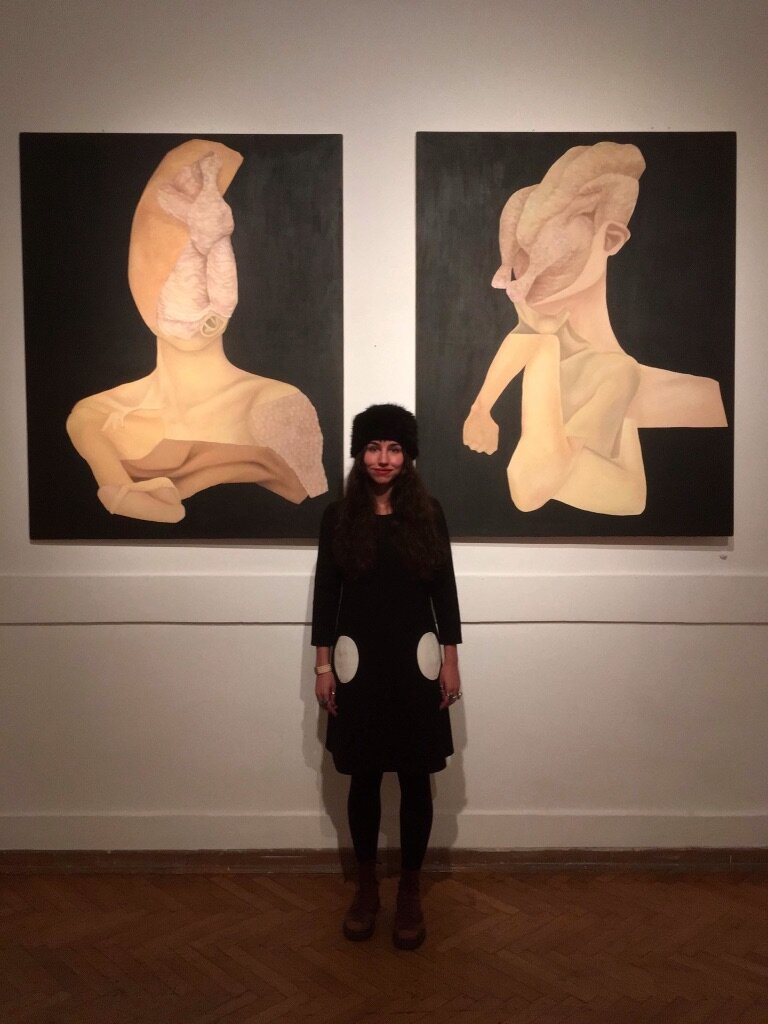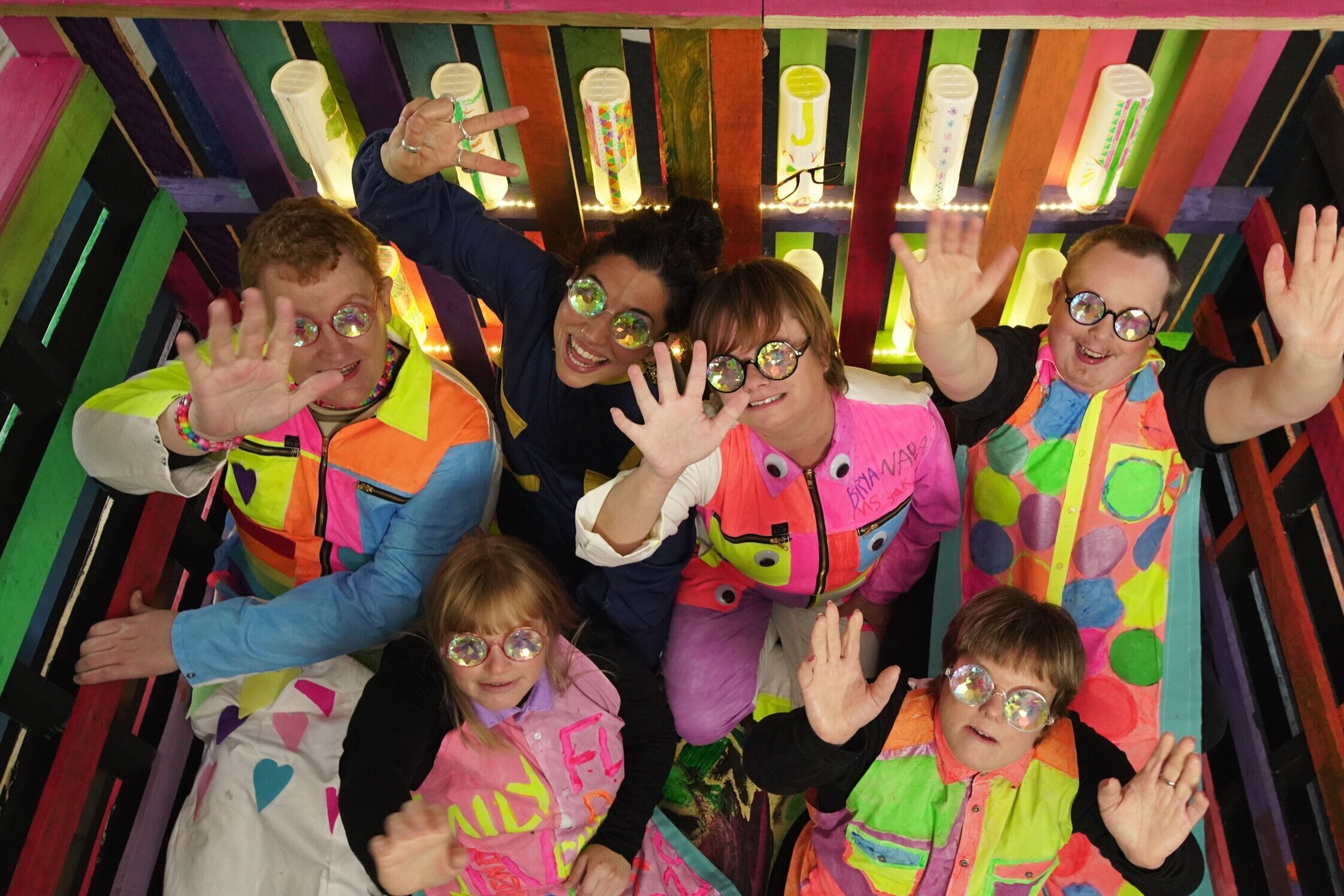Talking To: Morgan Tipping
We recently talked art, power, class, society, why she loves Bristol and everything else in between with Morgan Tipping, a Bristol based artist and educator.
Morgan is a socially engaged artist and her latest commission has been setting up an alternative art school for marginalised people called The Factory Art School, at the National Trust owned The Workhouse in Southwell, Nottingham. Her work is constantly challenging the norms about how we interact with the marginalised and less able-bodied within traditional art establishments and within society as a whole. Basically, Morgan Tipping, rather than just making, is on an exciting mission to make art accessible to all, and we want to come along for the ride.
Where are you at the moment?
‘I am in my flat in St Pauls, Bristol. I am from London originally. I moved to Bristol three years ago, but St Pauls feels like home now; it feels familiar. It is stimulating, interesting; the vibrancy of this neighbourhood. I grew up in south west London, which is the most boring bit of London, but as soon as I could I left and went exploring other bits of London like Hackney and Camden. St Pauls has that same vibe’.
Tipping has recently co-created and been involved in running an alternative art school at an old workhouse in Nottingham, working with a wide range of differently abled people, including those with physical differences and those on the autistic spectrum. She has been working alongside her partner Tommy, a filmmaker, the illustrator and teacher Mel Rye and musician Dav Shiel to create an environment where art and the creation of art is available to all.
Do it Different at The Factory
This idea has been central to all of her work since graduating from art school. In the past she has worked with people living in poverty in India, with refugees in a camp in Greece, and UK children who are at risk of exclusion from education. We asked her what drove her to wanting to work with so many diverse and marginalised groups.
‘I am a bit of a hybrid really; my dad was from a council estate in Manchester, my mum from a council estate in Watford, I grew up in a part of London that went from being normal to insanely wealthy, so I never felt like I really fitted in. I always look at things in term of class, of power relations, and I think that because my parents were both teachers, and they were the first people in their families to go to university, we didn’t have tonnes of money kicking around when I was younger, but, I was really privileged because I had access to learning’.
‘Then when I was at art school I started working with organisations that worked with groups they described as underprivileged. At that time I was also making paintings, and I started selling paintings through an art gallery. So I was doing that, but at the same time doing all this work with people with different types of issues, and the difference seemed bizarre’.
‘I guess what was going on in my head was, and this isn’t a criticism of people making products, but I was making products for members of this rarefied, elite world to buy, that not even I could afford to buy, sustaining myself through that, but I never used to really tell people about that…. I suppose because I spoke so much more passionately about the other stuff I was doing’.
‘Then in 2008 I went and worked in one of Krishnamurti’s schools in India. The experience was more mind-blowing than art school; it blew everything apart and then into focus when I came back to the UK’.
Morgan then goes on to explain how this has led to the work she was doing at The Workhouse before the lockdown.
‘I was trying to bridge my art practice with my pedagogical work. Foucault says a lampshade can be art, so why can’t human social relations? People have been investigating this for centuries and there is such a rich history of socially engaged practice, so I started thinking about how I could pull the two together in a way that felt authentic’.
‘In everything I do I think about how things can be replicable with little money. I work with lots of found materials and stuff that can be bought without much money. That feeds into the work massively, being very aware that it is about the skill and ingenuity and not the access to the right equipment’.
It sounds like it is really important to you that art is available to everybody…..
‘I think in the beginning it was the mindset that “this has to be available to all”, then it moved on, particularly when working in the refugee camp; it turned into a reverse colonial process. If you aren’t learning something from the people you are working with something is wrong, you are on a power trip. Working at The Workhouse with people whose communication channels are so unique to them, it is like putting a deep sea diving helmet on and going to the bottom of the ocean and seeing this new terrain, and exploring it with them’.
‘Other than making art accessible for all, accessible creativity should change culture and shape society’.
What do you believe are the determining forces of marginalisation at the moment?
‘In this country class is omnipresent, we are still feudal peasants who can’t get away from the mindset of servitude towards the landed gentry. Which is why a capitalist model works so well…. you work because you aspire to be rich. The old system of class gets updated into this love of power. I am a socialist and I would like to make those socialist networks a reality’.
‘There is the same obsession with the top down system in our education. Education seems so industrial, why do we keep going with structures that don’t work? If we take apart the structure of the school day, the mandatory model, the uniformity, if we stop this obsession with axing creative subjects, everyone learns something from creative learning’.
‘Take me home’
‘If you go somewhere like an art school it’s weird that the orthodoxy can be even tighter. It’s a tall order to say to people it's worth getting into a huge amount of debt. There is currently a lot of talk in the arts about building resilience. Resilience is very middle class language - it makes me want to say…. fuck you, talking about resilience, you have no idea how resilient people are. Someone who is placed in the privileged position of being a lecturer, you are there to scaffold your students, help that person to use every intellectual quality that person has. You are not there to predetermine the outcomes that they make’.
The Factory art school is on hold due to the pandemic at the moment, so what is coming next?
‘That will reopen. In the meantime I am working with a network of workhouses called ‘The Workhouse Network’, developing a digital museum exploring historic pauper stories for each site. We are making audio pieces, with animations exploring this, with contemporary parallels’.
What is exciting you at the moment?
‘I am volunteering during lockdown for Acorn (helping vulnerable people who are self isolating). I am inspired by how quickly they got a structure together and how it all flows on trust. There are a lot of very worrying scary things happening in the world, revealing huge inequality that was always there. I am optimistic and hopeful we can’t go back to our old ways after this. I think it will be difficult to remain the same, people will need to make a fuss when we return to normal. Bristol is a really cool city for that; people are willing to make a fuss for the right reasons’.
‘I think of the Bangladeshi photographer Shahidul Alam and his work frequently at the moment. Alam founded a school which came out of photographing low paid workers in Bangladesh, then he started supporting those people to self document instead’.




